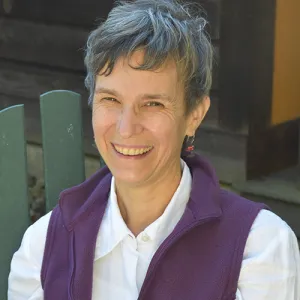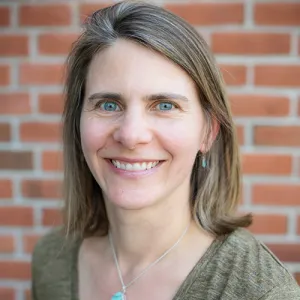
Environmental Concentration
The Environmental Concentration provides an experiential framework to support students in the exploration of issues related to the environment, ecological design, and sustainability embedded in disciplines across the college. The concentration enables students to weave together formal and informal learning opportunities as a way of bridging theory and practice in support of environmental decisions and action. With support of an academic adviser, students will shape a topical area of inquiry of their choosing to define their environmental concentration. The possibilities are endless!
Announcements & Updates
Concentrations Fund
The Concentrations Fund supports concentrators with funding needs of up to $100 total per academic year that directly relate to their concentration (e.g., materials, activities, or travel). Applications will be reviewed by concentration directors and considered in relation to other applications across all concentrations at the beginning of each month through the semester. Students may apply for up to $100 per academic year. Please note that, because of fund limits, not all applications will be funded. Awarded funds will be distributed to reimburse students for actual expenses, once students have submitted receipts.
Requirements & Courses
Learning Goals
Students in the environmental concentration will:
-
Bring together knowledge and data from different fields, including their own disciplinary lens, within the unifying context of environmental problem-solving
-
Learn to see environmental issues from multiple perspectives by interacting with faculty, staff, alumnae, other students, and community members with different backgrounds, experiences, and knowledge, through the gateway course and internships
-
Develop skills in communicating, listening, and self-reflection to facilitate decisions and action
-
Engage in substantive environmental work on internships and on interdisciplinary teams in the capstone experience
Courses
ENX 100 Environment and Sustainability: Notes from the Field (1 Credit)
This 1-credit lecture series introduces students to theory and practice in fields related to the environment, sustainability and climate change. Students gain insight into how their liberal arts education and skills in critical thinking and analysis apply to a variety of environmental issues and sustainability contexts. Speakers, including distinguished alumnae, are drawn from the five colleges, the Pioneer Valley and beyond. S/U only. This course can be repeated for credit.
Fall
ENX 301 Seminar: Environmental Concentration Capstone (4 Credits)
Restrictions: Juniors and seniors only. Enrollment limited to 15. Instructor permission required.
Fall
ENX 400 SPECIAL STUDIES (1-4 Credits)
Instructor permission required.
Fall, Spring
Crosslisted Courses
IDP 132 Designing Your Path (1 Credit)
In this course, students test different integrative paths of their own design, tell their own story, and collect their work in a portfolio. They learn to articulate connections between their work in and outside of the classroom, and explain how Smith is preparing them to engage with the world beyond. This course is for students who are starting their Smith journey, embarking on or returning from an immersive experience abroad, weaving their interests through a concentration or self-designed major, or wrestling with expressing what a Smith education has prepared them to do. S/U only. Enrollment limited to 12.
Fall, Spring, Variable
IDP 232 Articulating Your Path (1 Credit)
This course is for students who have completed IDP 132 or another Smith experience that allowed for reflection on curricular and experiential work, values and goals. Students begin to look outward. After reviewing and assessing important learning experiences, students conduct qualitative interviews to gain a multidimensional understanding of their discipline in the world. Students simultaneously create a "personal syllabus," a reflection on maintaining and pursuing curiosity. Finally, they make a narrative digital portfolio and gain experience with public voice through an op-ed, TED talk or other piece of media. S/U only. Enrollment limited to 12.
Fall, Spring, Variable
LSS 100 Landscape, Environment and Design (2 Credits)
Through readings and a series of lectures by Smith faculty and guests, this course examines the history and influences out of which landscape studies is emerging. The course looks at the relationship of this new field with literary and cultural studies, art, art history, landscape architecture, history, biological and environmental sciences. What is landscape studies? Where does it come from? Why is it important? How does it relate to, for instance, landscape painting and city planning? How does it link political and aesthetic agendas? What is its role in current sustainability debates and initiatives among architects, landscape architects, planners and engineers? Students may take this course twice for credit. S/U only. Arts; Social Science; Historical Studies
Spring
Environmental Concentration
Interested students may apply to the environmental concentration after declaring a major, and are strongly encouraged to satisfy the gateway course requirement before they apply. The application is available on our website.
Requirements
The environmental concentration has five structural components:
- One gateway course: ENX 100 or LSS 100
- Four academic core courses that span at least two of the three divisions (humanities, social sciences and natural sciences). These courses are chosen in consultation with an adviser and come from among the many courses offered across the curriculum.
- One course in path-making, approved by the environmental concentration directors and taken after the student has been accepted into the environmental concentration
- Two applied experiences, which can include internships, projects on campus, volunteer or paid work. Each practical experience must include at least 100 documented hours of work and be approved by the academic adviser. Collaborative and international experiences are strongly encouraged.
- One capstone course: ENX 301, completed in the student’s final year of study.
Additional Programmatic Information
The concentration is limited to 15 students per class year. Sophomores, juniors, and Ada Comstock Scholars are encouraged to apply. The selection of concentrators is based on academic performance, intentionality and commitment, and diversity of the cohort.
Practical experiences are an integral part of the Environmental Concentration; they provide opportunities to integrate the knowledge gained from various courses in support of work related to the environment and the concentration, and to learn from and critically reflect upon those experiences outside of the classroom in a way that enhances your course of study at Smith.
Practical experiences may include internships and paid or volunteer work that aligns with your topical focus. To fulfill your requirements, you must complete two distinct practical experiences.
Minimum Requirements
You will complete two different practical experiences to fulfill the requirements for the concentration. Each internship, volunteer or work experience must meet the following minimum requirements:
- Consist of 100 hours of work—roughly equivalent to a semester-long campus commitment or a 2.5-week full-time internship. (In some situations, a work experience may be concomitant with academic study that bears credit. The work component should be distinct and, on its own, satisfy the 100-hour minimum.)
- Focus on substantive, content-based work.
- Occur after your arrival at Smith.
- Be approved by your concentration adviser.
Receiving Credit
To receive credit for your practical experience, you must:
- Talk your plans over with your concentration adviser. Then apply for internship credit via the Lazarus Center for Career Development. For funded internships, students will only need to apply for credit. For normally unfunded internships, students may apply for Praxis with credit or Praxis Plus with credit, whichever is appropriate.
- In your application be sure to indicate that the internship is for the concentration. Be sure to list your faculty adviser for the concentration as your adviser (not your major adviser), and Joanne Benkley as the concentration director in your application. Praxis Plus eligibility forms—the Concentration Director Confirmation—should be sent to Joanne Benkley.
Retroactive Practicum Experiences
With your adviser's approval, a practical experience completed before entering the Environmental Concentration may be accepted provided that it consisted of at least 100 hours and took place after your senior year of high school and within two years of matriculating at Smith. Please consult your concentration adviser, and then document your experience by completing the Practical Experience Approval Form retroactively with your concentration adviser soon after you have been accepted into the concentration.
Additional Course Information
Gateway Course
Choose one:
- ENX 100: Environment and Sustainability: Notes from the Field (1 credit/offered each year)
- LSS 100: Landscape, Environment, Design (2 credits/offered each year)
The Gateway Course may be taken prior to admittance to the concentration and is typically completed before senior year.
Path-Making Course
IDP 132: Designing Your Path
or
IDP 232: Articulating Your Path
These courses are intended to support students to develop self-agency in framing the area of their intellectual inquiry. Students must complete this requirement after they have been accepted into the concentration and normally after they have completed at least one practical experience. Students who choose to take IDP 132 prior to joining the concentration should plan to take IDP 232 to meet the program requirements.
Academic Core
In consultation with your adviser, you must choose four classes from among the many courses offered within the Five Colleges that connect with your concentration focus. Courses must span at least two of the three divisions: humanities; social sciences and history; and natural sciences and engineering. It is expected that you will take at least two of the core courses in semesters after admittance to the concentration.
Capstone Course
ENX 301: Environmental Concentration Capstone
This senior seminar course brings concentrators together as a cohort to engage in a community and team-based capstone project. It is designed to complement the core courses students take for their focus by providing a deeper experience.
Advisory Committee
Forms
Declaration of Concentration
Students who have been accepted into the concentration and received their adviser’s name need to fill out the Program of Study Declaration Form.
This is the last step in making the concentration official in Workday.
Practical Experience Forms
After discussing a proposed practical experience with their advisers, students must complete the corresponding practical experience approval form in order to have the experience count towards the concentration requirements:
- Summer Internship (100 hours or more): Internship Credit Application
All students undertaking a summer internship of at least 100 hours are eligible to receive academic credit (0.25 credits per experience) that will appear on their transcript. All concentration students preparing to undertake a paid internship should complete this form. Students completing an unpaid internship who are applying for Praxis funding support should use the “Praxis with Credit” form. See below. -
Unpaid Summer Internship (220 hours or more): Praxis with Credit Application
All Smith students are eligible to receive a stipend payment for one normally unpaid internship through the Praxis program at the Lazarus Center. These internships must take place during the summer, and must comprise at least 220 working hours.Praxis Plus is an optional second Praxis stipend for students enrolled in a Smith concentration. In order to be eligible for Praxis Plus, the proposed internship must be in support of Concentration Practical Experience requirements. Student eligibility is confirmed via a Concentration Director Form, in which the Director confirms that the proposed internship will count toward Concentration requirements. Students applying for Praxis Plus should be in touch with Concentration Director Joanne Benkley about any required Praxis forms (e.g. the Concentration Director Completion Form).
Note: Students applying for Praxis Plus must have already used a Praxis stipend previously.
- Other Internships and Practical Experiences
Students whose internships do not meet the above requirements because they take place during Interterm, during the school year, or for any other reason, should fill out the forms below.
Prior to starting the internship please fill out the Practical Experience Approval Form.
Upon completion of the practical experience please fill out the Practical Experience Completion Form. - Retroactive Credit for an Experience
Students who completed a practical experience relevant to the concentration prior to being accepted into the cohort should discuss the experience with their concentration adviser as soon as possible after being accepted into the concentration. Once the experience is approved, and before the end of the semester they join, students must fill out the Practical Experience Completion Form. Be sure to check the “Retroactive Experience” box on the form.
Practical Experience Information
In the past, students have completed Environmental Concentration practical experiences based on the following topics:
- sustainable food
- environmental justice
- environmental education
- sustainable development
- environmental humanities
- art and the environment
- environmental journalism
- climate science
- environmental diplomacy
- agricultural economics
Application
The next application deadline is March 13, 2026. We consider applications on a rolling basis, so let us know of your interest if you are outside of this cycle. You are always welcome to reach out to Joanne Benkley with questions.
To apply to the Environmental Concentration, log in and fill out the online application. You may apply to the concentration in your sophomore or junior year.
Contact CEEDS
Wright Hall 005
Smith College
Northampton, MA 01063









